Last Updated on January 29, 2025 by Kirsten Raccuia
Sadly, for most Americans, affordable healthcare is a joke. And top-quality, affordable healthcare is even more laughable. It’s one of the reasons some people move out of the country. It’s not why we moved, but it’s certainly a benefit that healthcare in Malaysia is affordable, and the quality of care is outstanding.
When people think about moving to another country, healthcare is one of the most important factors. The International Living Global Retirement Index consistently ranks Malaysia in the top 10 places to live overseas, with healthcare as one of the top-ranking factors. This year it received 93 points on a scale of 100.
The index doesn’t just apply to retirees; the factors it ranks are a wealth of info even if you are a digital nomad planning a few months somewhere.
I know many of you are thinking about moving here and are curious about what healthcare in Malaysia is like. So, here are the deets – everything you want to know, and probably some things you don’t, but you’re about to learn anyway.
Healthcare in Malaysia: Best Attributes
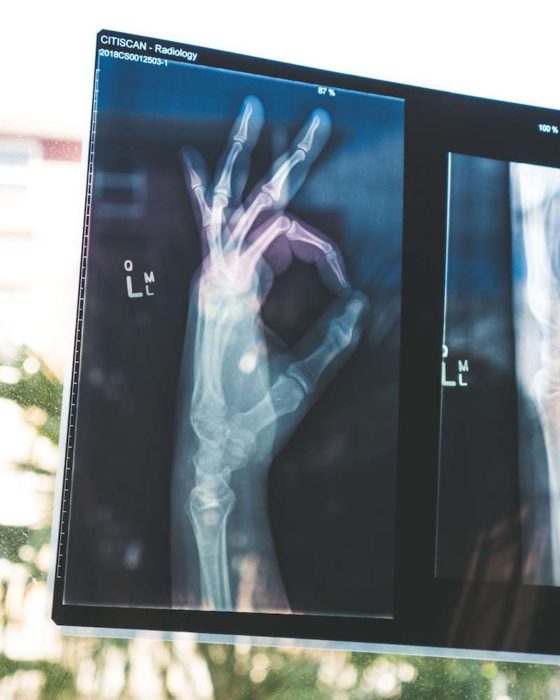
The thing about healthcare in Malaysia is that it consistently goes above and beyond the standards we expected when we moved here. Even coming from the US, where the benchmarks (and bills) are incredibly high, I have never once felt like the medical care here is a notch below my snooty American standards. Not once.
Everyone has access to healthcare in Malaysia – affordable, quality care.
English Speaking Doctors
It’s all good to live in a beautiful country, soak in all the culture, and eat all the food until you have to go to a doctor for something and you can’t communicate.
Been there – done that when we were in Phnom Penh, Cambodia, and I got bitten by a poisonous spider.
As the poison flowed into my foot, it started turning red, and within an hour, the rest of my leg followed suit. We knew we had to find a doctor quickly. Off to the clinic we went, only to find we were in a bit of a predicament. Without seeing me, Dr. Quack showed up wearing scrubs and ready for surgery, except he didn’t speak English, and my Khmer leaves a lot to be desired.
After a quick game of charades (I play an amazing biting spider, in case you’re wondering), he lanced open my toe and removed all the poison and eggs.
Then he squirted an entire tube of antibiotic cream on my big toe. No joke. The ENTIRE tube. And he used the whole roll of gauze to wrap my big toe and foot. I limped out of there with an oversized bandage and medicine squishing out every time I took a step. It looked like I stepped in mayo and was leaving a trail everywhere I went.
We immediately went to a pharmacy and bought a new tube of cream and redressed it ourselves.
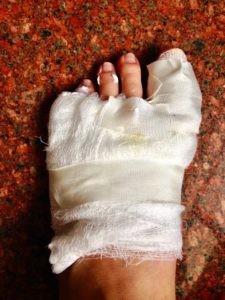
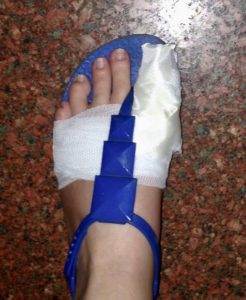
Anyway, I digress. All that to say, you need to communicate with your doctor, and having a translator isn’t always an option. And google translate sucks.
All the doctors in Malaysia speak English.
Actually, almost all the people here speak English, which makes life pretty easy. No need to worry about going to the doc for a sore throat and having them tell you to drop your pants for the consultation. While that may be fun for some, and you know who you are, it’s not for most of us.
World-class Healthcare and Standards
Most of the doctors here were trained in America, the UK, or Australia, so not only do they speak English, the level of care is up to Western standards.
The hospitals here are very impressive. There are seven hospitals in Penang and even more in Kuala Lumpur. The golden standard for measuring healthcare organizations around the world is the Joint Commission International. Hospitals that are JCI accredited are leaders in quality healthcare and safety.
Penang has three JCI hospitals: Gleneagles, Penang Adventist Hospital, and KPJ Penang Specialist Hospital.
I’ve been to the first two and several others that aren’t JCI accredited, and they were all well above my expectations.
Kuala Lumpur also has many JCI accredited hospitals, as does Malacca and Johor, so you’ll have plenty of choices.
Personally, I never knew about JCI until we moved here and started a medical tourism biz. It may be the golden seal of approval, but I can assure you that any of the hospitals in Penang that I have been to are of the highest quality and standard. I would have taken my gramma to any of them for treatment. That’s how top notch they are.
There is a reason why Malaysia ranks 93/100 on International Living’s Index.
Public and Private Healthcare in Malaysia: Pick Your Poison
Ok, maybe that’s not the best adage, but what I’m saying is you get to choose from public or private hospitals. There is a two-tier Malaysian healthcare system: government-run universal healthcare and a co-existing private health care system. The public hospitals are cheaper, but we choose private hospitals.
Even though we pay out of pocket, we find the private hospitals very affordable.
If you are looking for a private hospital in a particular area, the Association of Private Hospitals of Malaysia has a list.

A Quick Note on Malaysia Health Insurance
We have a local policy that covers us up to about $300,000 per year, which is a lot for Malaysian medical treatment, unlike in America. It’s not for doctor’s appts; it’s for hospitalization only.
It costs Mark $738 and me $468 per year.
Before Covid, we had another worldwide policy for our travels that was $193 per person per year.
A Multi-faceted Approach to Healthcare in Malaysia
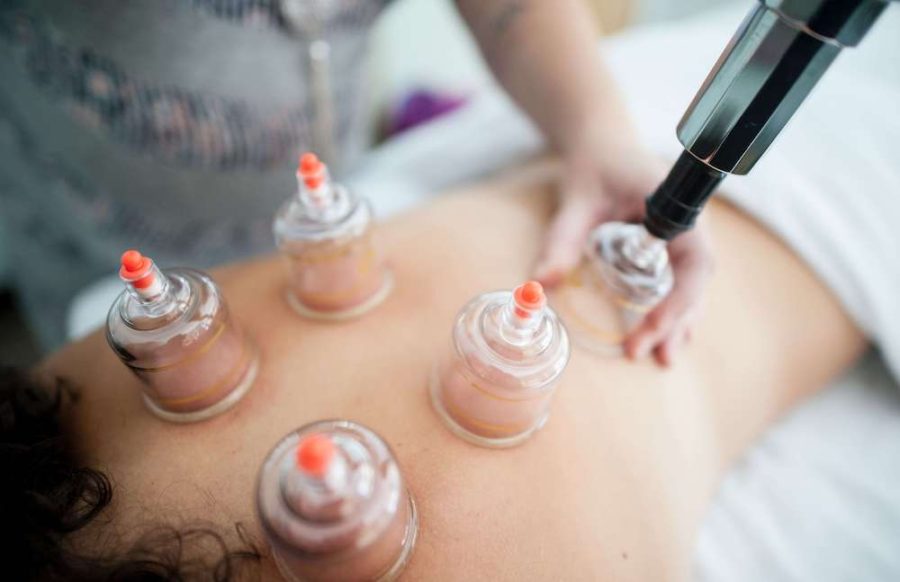
Living here means we get the best of both worlds when it comes to healthcare. We can seek out Western medicine or choose Eastern modalities, or a combo of both.
Affordability and Malaysia Healthcare Costs
- A doctor’s clinic visit will run you anywhere from $12 +
- Specialist $25+
- Dental cleanings and fillings at a very high-end office: $30+
- If you are admitted into a private hospital, an overnight stay will cost roughly $95+ for a private room, depending on which hospital you choose.
- Drug costs are very low here. Somethings are easier to get than others so if you are on special meds, check that they are available here. To give you an example of prices: Zyrtec is ¢0.23 per tablet, the generic is ¢0.12 per pill, generic Zolpidem (Ambien) is ¢0.87 a tablet.
- I had a major sinus surgery here. I spent a couple of days in a private room and was very well cared for. The total bill? $1700USD. That same surgery in the US would have had at least another zero on the end. At least!
To find out more about what else is super affordable in Malaysia, read my Cost of Living article.
Doctors Who Care
It’s more than communications and affordability that makes healthcare in Malaysia so world-class. It’s also about the quality of care and the medical staff. The doctors here are very attentive. They are not restricted to 15-minute appointments; they will spend as long as it takes with you to figure out your needs.
I’ve never felt hurried or like I ask too many questions – and I ask a lot of questions, just ask Mark.
There is never a rush; they fully listen and take a genuine interest in healing their patients. Imagine that! It’s very refreshing.
Medical Equipment in Malaysia
One thing that impresses me over and over is that the private hospitals I go to have the latest and greatest state of the art medical equipment and technology. From 3D mammography to AI, the hospitals here are on top of it!
Overview: How to go to the Doctor
So, the thing about going to the doctor here is that you have a few options.
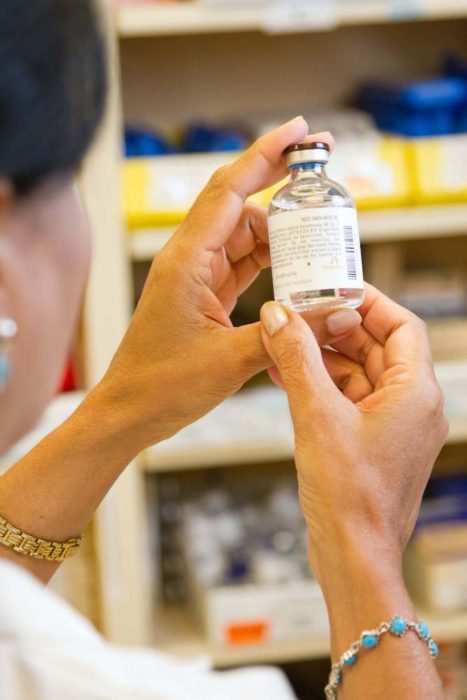
Pharmacies
If you just have a minor stomachache, your first line of defense is the pharmacy. Like in the US, they are very well educated, informed, and speak English.
Clinics or Stand Alone Doctor’s Offices
But let’s say that stomachache is now runny tummy, and it’s time to see the doctor. Head over to the local clinic or stand-alone doctor’s office. These are general practitioners and are every bit as good as the hospital docs but have decided to make their own clinic instead of having an office in the hospital.
When you go to any clinic, you’ll give them your info, they’ll give you a number, and you wait your turn. That’s it.
These clinics are usually small, and you can get assistance within an hour or two depending on the line. They also have a pharmacy on-site, so you will leave with the meds needed.
Specialists
Using that same example, let’s say your runny tummy is not getting better, and you want to see a gastroenterologist. You can do some research to find a gastro specialist or choose a hospital and give them a call. You can just show up and be seen, but I always call ahead. It’s that easy.
You’ll register at the hospital’s front desk, tell them which doctor you want to see, and just like in the clinic, you’ll get a number and wait your turn. No referrals needed.
While you are there, if the gastro guy needs some lab work or scans done, that also happens right away. The specialist’s nurse will walk you over to the lab and get you a number. Just sit and wait your turn.
There may be a lot of waiting, but everything happens in one day, and most of the time, you can get your results on the same day. You get to see the doctor of your choice on the day of your choice. Not bad, eh?
The system is very efficient, and I think the US could learn a lot from the system here.
Emergency or Critical Care
So now, let’s say you have a high fever along with that runny tummy, and you need more critical healthcare. Go to the ER of your choice. Here it’s called the A & E or Accident & Emergency department. Get the care needed immediately, as you would in the US. It’s basically the same but without the extortionate bill.
Ambulances
The one thing that bothers and worries me, is that if there is an emergency, it’s best to get yourself to the hospital. Dialing 999 (911) won’t do you much good.
I’m told that most ambulances aren’t well-appointed and will bring you to the general public hospital. However, if you are unable to get yourself to the hospital, it’s best to have the nearest hospital’s ambulance number so they can get you. In my opinion, it’s the biggest weakness of the Malaysian healthcare system.
Dentistry in Malaysia
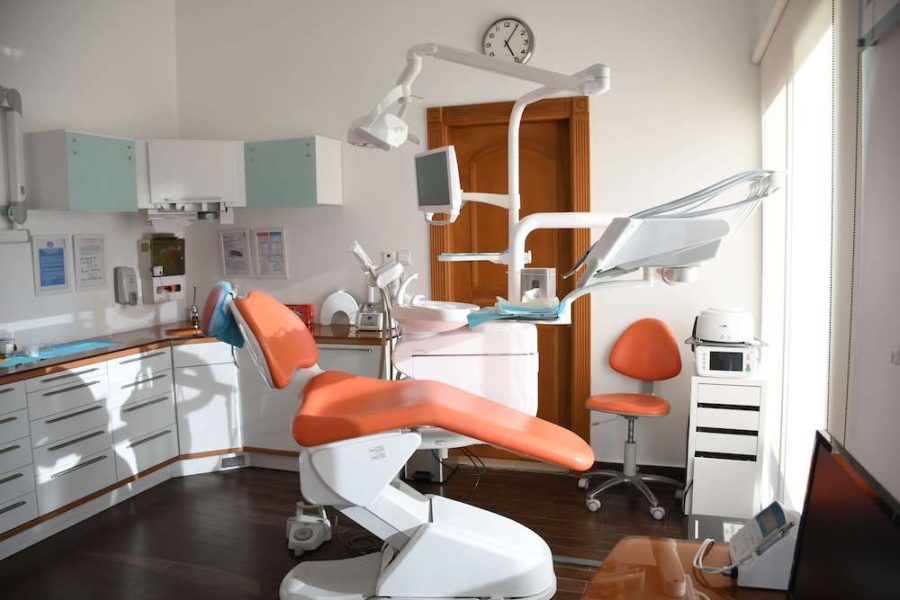
Just like the medical care in Malaysia, dentistry is world-class. I was shocked to see how state of the art the dental technology was when we first moved here. I’ve only been to one dentist and have been extremely happy with him, his gentle care, his staff and the entire dental process.
A Sidenote About Bedside Manner
Not every doctor has the bedside manner that we are used to in the US. Some do, and some don’t. Malaysians tell it like it is, and sometimes subtleties fly out the window. It doesn’t make them less of a doctor. It just makes them less of a wordsmith.
The Final Bill

Every year, people from all over the world come to Malaysia for healthcare. Not just people from neighboring countries and those with low healthcare standards. I’m talking about people from the UK, Australia and Hong Kong. It’s why we started a medical tourism biz here; the care is that good.
Access to affordable and high-caliber healthcare is one of the things that can improve your quality of life, and Malaysia has it in spades. No need to worry about going into debt for a doctor’s appointment or a hospital stay. It’s premium healthcare for pennies on the dollar.
Now you know what healthcare is like in Malaysia, let me know in the comments below if you have any questions that I didn’t cover here.

Save this important info in a safe place by pinning it in Pinterest:
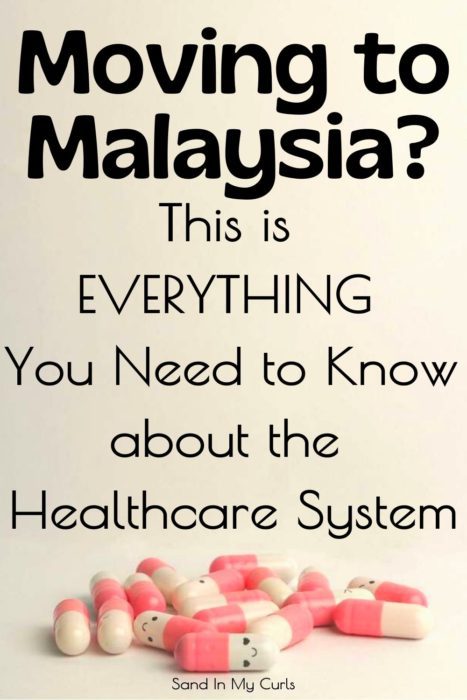
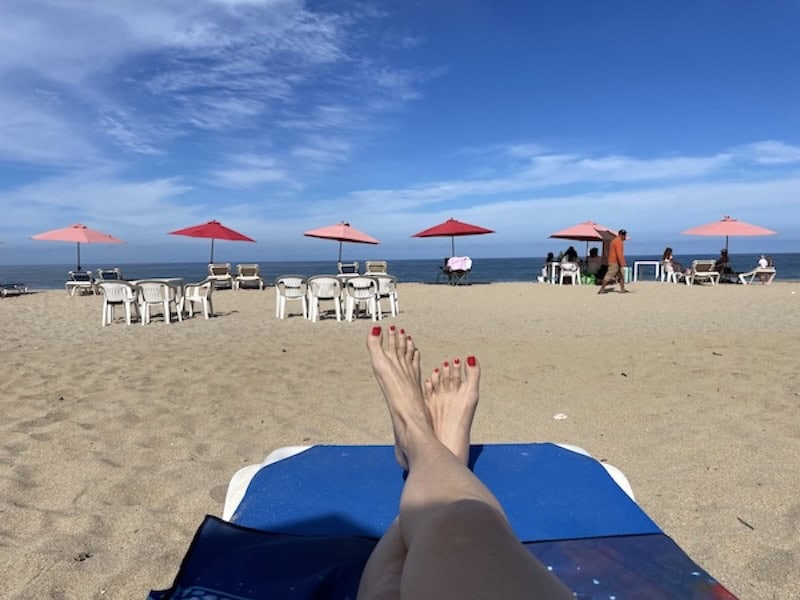
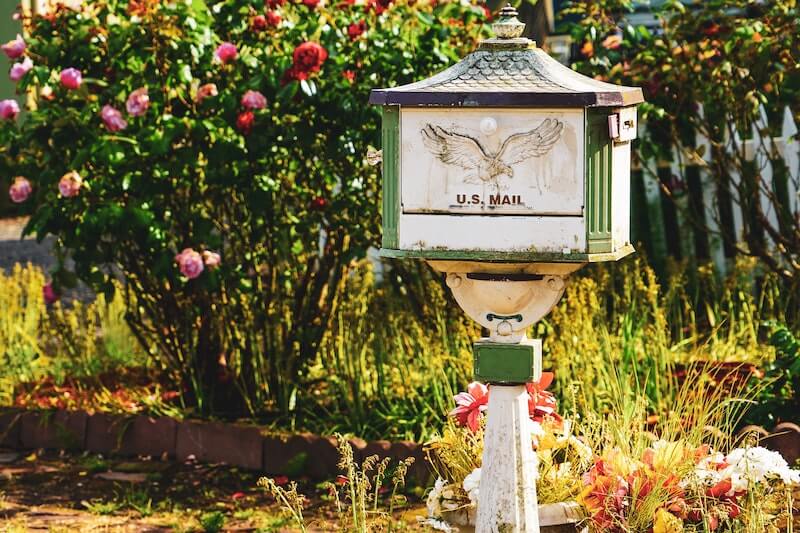
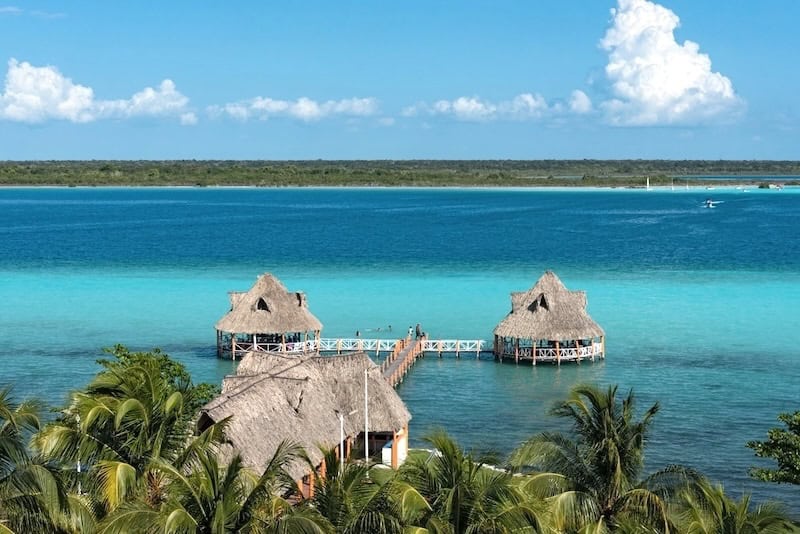
Aloha Kirsten,
I love your writing style! I get a real laugh the way you describe certain things.
My plan is to retire in GeorgeTown and am curently looking at the requirements to live there permanently. Medical insurance is a must in order to get the Visa. I am a female, age 78 in good health. Would you please give me the names of any insurance company that is willing to insure me at this age?
Mahalo nui loa,
Hi Barbara,
Thank you so much! That makes me so happy.
I think the best way to get that info is through Alter Domus the MM2H group. They know all the ins and outs about the requirements to live there and have all the right connections. Reach out to them.
Wow, Kirsten! All your blog entries are so helpful and informative! I’ve been reading through them all afternoon and I am so thrilled to have found such a wonderful wealth of information. I would love any information you could give me on the insurance agents you use to get health insurance in Penang. I have been wondering about how to handle insurance. If you would be willing, I would also love the name of your travel insurance policy. Thank you so much for giving us such great information and being willing to share your expertise!
Hi Danika, I have a great insurance agent named Nicole at Prudential. Her email is [email protected]. Tell her I sent you. Good luck,
Kirsten
Hi Kirsten – great post, thanks! Much relieved after reading it as quality of healthcare sounds great! My husband and I are hopefully moving to Penang from US this year as MM2H holders. My husband, who is 72, had to buy healthcare in Malaysia before he turned 70, as that is the cutoff age. We bought it in advance of our move, knowing he wouldn’t be able to get it otherwise. It’s very expensive – he’s paying US $4K a year for a comprehensive policy. Would be very grateful if you could email me privately with healthcare contacts you have so I won’t have to pay so much for my coverage.
Hi Eileen,
I’ll DM you.
Hi Kirsten I tried to submit a question earlier – not sure if you ever received it? First of super informative blog covering expat life in Malaysia. My question : would you know where to find information related to prescription drugs? I am a kidney transplant patient and need prograf and celcept (or generic similar drugs) on a daily basis to stay alive.
Thx in advance – cheers
Regards Carsten
Hi Carsten,
Thank you so much for reaching out.
I did get both questions. I would say your best bet is to reach out to a couple of the hospitals here. Try Island Hospital (https://www.islandhospital.com/en/home) and Gleneagles (https://gleneagles.com.my/gleneagles-penang).
I hope that helps.
Kirsten
Kirsten
Love your blog, covering many aspect of expat living in Malaysia so thank you so much 🙂 I got a question about prescription medicine – hoping you can posit me to useful information. I am a kidney transplant case meaning that I need 2 specific kind of medication (prograf and celcept or equivalent generic medication) So am wondering if you can point to information regarding a) cost and b) availability. All the best
Regards Carsten
Hi Kirsten
Like you, one of the things that concerns me is getting an ambulance if required. in Australia we dial 000 and an ambulance will be there very quickly. We are moving to Penang next year and hoping to live in the Tanjung Tokong/Tanjung Bungah area. One of the main reasons we’ve chosen these areas is that if we decided on Batu Ferringhi, getting an ambulance there at the best of times would be time consuming. Throw in a delay on that winding stretch of road and all sorts of problems could arise. In January this year I had to see a doctor every 3 days to get a dressing cleaned on my hand where I had broken a bone. We went to the Tejani Clinic in Tanjung Bungah. Service there was very very good.They also had their own ambulance. Be interested in the cost of Medical Insurance in Penang. We’ve got the MM2H visa so after a year we could use part of the Fixed Deposit for any medical emergency, but for that first year we may look at one tears Travel Insurance depending on the cost.
As always, a pleasure to read your articles on Penang.
We’ve just come out of a lengthy lockdown in Melbourne so we can’t wait to get to Penang. The lockdown has made us even more determined to get there.
Hi John,
We live in Tanjung Bungah too and yes, we love Tejani. He’s a wonderful man on top of being a good doctor.
As I mention, our medical insurance in Malaysia is very affordable, just over $1200USD per year for both of us. When you are ready, nearing your time here, I can get you in touch with a couple of insurance agents to get your details sorted.
I hope you stay out of lockdown and get here soon.
Thank you for that sensible and “no frills” synopsis. I only arrived in Penang 2 weeks ago and at the age of 67, health care is obviously something I need to be clued up about. I am applying for Medical Insurance but that is a minefield too. Hey Ho!
Hi Jill
We recently got affordable insurance and a great service from Ms Tan. She’s absolutely lovely and will come to your apartment to sort things out for you. Let me know if you need her info.
Hope that’s helpful.
Hi Jill,
Welcome to Penang! Such a crazy time to move here, but I hope you are enjoying yourself as much as possible. I have a few contacts for you for health insurance. If you are interested I can email you privately. Just let me know.
Also, if you need anything or introductions, I’m here to help.
Talk soon,
Kirsten
We are SOOOO coming to Penang to check things out once we can safely travel again. I really appreciate your blog posts. From reading yours and several others. I have to say that out of our list of six countries to check out, Malaysia is #1 on the list.
My wife grew up on Guam and we visit there often. so we have a pretty good idea what to expect weather-wise. Quality healthcare is definitely checking an important box on our list. Of course, for me, the food is a big attraction and we have both spent time in Asia and like the culture a lot.
Hi William,
Thank you so much. Malaysia is def a great place on so many levels and if you’ve already been out this way you kind of know what you are in for. I hope you can get here soon and that Penang exceeds your expectations.
Excellent write-up! I’ve found exactly the same results here in Thailand. As a
relatively healthy guy, medical wasn’t top of my list of needs when I moved but I’ve really been impressed with the quality of service and low cost.
Thank you, Michael. Thailand is the gold standard in healthcare in Southeast Asia!
Great info, Kirsten and Yes!!! I was pleasantly surprised by the exceptional care I received at Lam Wah E hospital. I also have a friend who ended up at the Glen Eagles ER who also received great care!! As a nurse and a snooty American, I’m somewhat ashamed to say I didn’t expect such high quality care! We both had a bit of a wait, but the care was top notch and the cost was almost comical! And I’m positive the wait was shorter than any American ER! Can’t wait to get back to Penang!!
Thank you, Sherry!
If a nurse (and not so snooty American) thinks the healthcare in Malaysia is good that’s even better!
Can’t wait to see you!
Hello Kirsten,
Great post and you covered every single point well! Always believe Malaysia’s public healthcare system to be the best in the world.
As for ambulances, a lot of companies have set up private ambulances to address the shortage. A bit expensive, but when the situation requires an ambulance, cost isn’t a real concern anymore
Hi Bobby,
Thank you!
I’ll have to look into the private ambulances, I only know about the hospital ones.